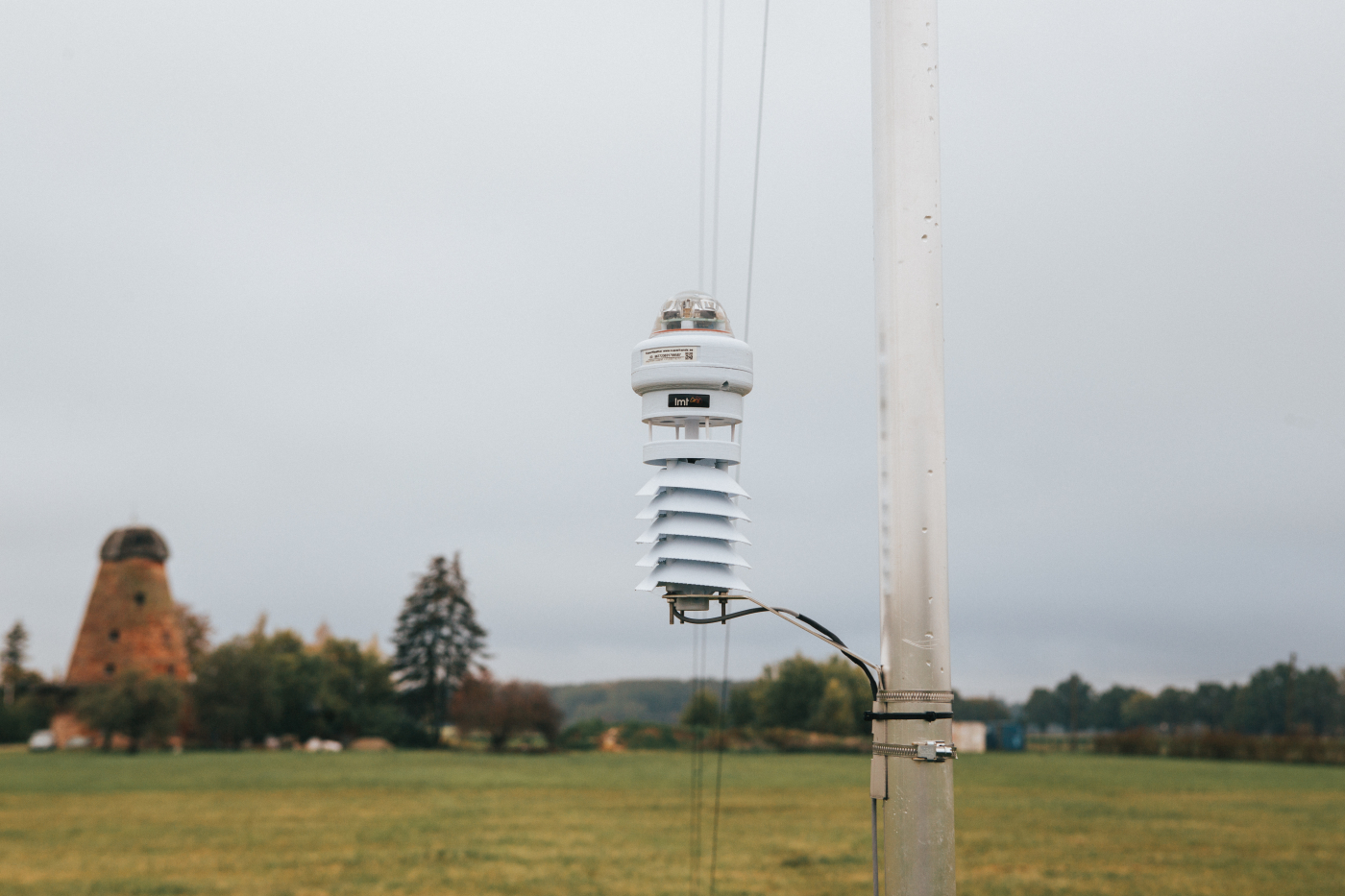LMT has recently installed four innovative meteorological stations in Jelgava municipality. The stations measure and record various meteorological variables using multiple sensors that are connected over an NB-IoT mobile network.
LMT has recently installed four innovative meteorological stations in Jelgava municipality. The stations measure and record various meteorological variables using multiple sensors that are connected over an NB-IoT mobile network. This is the first solution of its kind deployed in Latvia.
These meteorological stations, installed by LMT in collaboration with Estonian company Superhands, operate over a mobile data transmission network. The sensors are able to detect the temperature and humidity of air and soil, the strength and direction of the wind, as well as precipitation volume. The main advantages of such a solution include up to four times lower deployment costs compared to traditional solutions, and it doesn’t require any specific infrastructure development.
The accuracy of meteorological observations is significant to many fields, such as agriculture, road maintenance, civil defense, aviation, and scientific research. The information gathered by the meteorological stations is also crucial for the effective operations of various state services, such as the State Environmental Service, the Latvian Environment, Geology and Meteorology Centre, and more. The new generation of mobile data network-based technology solutions can be used on a broad scale to help a wide variety of industries make better, data-based decisions and improve their productivity,
indicates Ingmārs Pūķis, Marketing and Business Development Vice President at LMT.
The IoT-enabled meteorological stations are small in size and are powered by batteries with an average lifespan of 3 years. Latvian climate allows the stations to work throughout the year, and the gathered data is accessible online as graphs and numerical values. The idea of using an IoT solution for meteorological observations was born while exchanging ideas within the scope of the INTERREG III URBACT project “IoTXchange”. The potential solution was identified as a much-needed pilot project for municipal authorities, local entrepreneurs, and the residents of the Jelgava municipality.
With agriculture being one of the most important industries in Jelgava municipality, it’s sensible for the local authority to support the field’s growth. At the beginning of the pilot project, it was planned that the data would be available to farmers, and state services. Currently, we're at a stage where farmers have the opportunity to carry out their work following the newly acquired meteorological measurements that have also been passed to the Latvian Environment, Geology and Meteorology Centre for further analysis. We're certain that this solution will significantly help agricultural development in our region,
says Māris Žoids, a Jelgava municipality IT department representative.